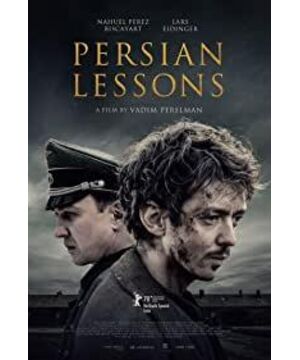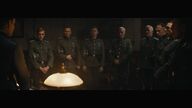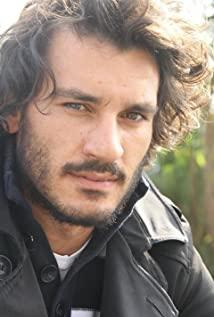It's a matter of opinion. My personal opinion is that Komaki has nothing to do with officers at all, but officers vs Komaki... kind of hard to generalize.
First of all, I don't think love should be an element that must be avoided in "Persian Lessons". After reading a lot in the discussion section, the reason given by friends who advocate zero tolerance for interpretation of love is mainly that talking about love between the persecutor and the persecuted is disrespectful to war, history, and the dead. That's absolutely true under certain conditions, but not all interpretations of the element of love are frivolous, cheap, and entertaining to the death. The years of war are extremely complex and special. There are people who die and people who survive. This may lead to emotional experiences that we cannot imagine and understand at all, such as morbid and deformed love. I personally think that this kind of emotion is very valuable to analyze and explore through art. I saw someone questioning, if during the Anti-Japanese War, if you describe the love between Japanese officers and Nanjing teenagers/women, wouldn't you think it's nonsense? I really don't necessarily. If the story is well written, it may be able to show the psychological deformation and the collapse of Japanese beliefs under the foot-binding cloth of militarism, or it may be able to stage an absurd satire of great sadness and joy (for example, officers who dig their hearts and lungs for eachother and end up with their own hands in the end) Lifting the little lover's intestines high with a bayonet, this kind of drama), is not bad. In short, I don't agree with the attitude that the comment area is now one-sided to kill the interpretation of love. Of course, I understand where the opponents are starting from.
Let's talk about the officer's emotional attitude towards Xiaojuan. The officer is gay, I think it's already obvious. He is so disinterested in women and even has a bad attitude. He has always been vague about the 'brother'... There are already a lot of analysis in the comment area and discussion, so I won't repeat them. In the gloomy and gloomy concentration camp, this gay who wanted to go to Tehran, who could write poetry by himself, had obsessive-compulsive disorder, and suddenly encountered Xiaojuan, a man who could speak Persian, said a few words to him as soon as they met. Poems, characters are particularly beautiful and neat guy. The officer then thought, this man is really good. His affection for Xiaojuan was gradually escalating throughout the process. Especially when the two are alone, the officer's goodwill is undisguised. He often smiles imperceptibly after Xiaojuan finishes a certain action (for example, when Xiaojuan points out that "there are only 39 words on this piece of paper". ). The climax of the escalation of goodwill was when the officer snatched a small roll from the team that was about to be shot, and excitedly asked him "why would he want to die with these nameless people for anyone." The officer, who had thoroughly distinguished Rolls from 'that group of Jews', believed that Rolls' life was valuable, and not just because Rolls worked for him. All of the above are the expressions of the officers' unusual emotions towards Xiaojuan. It is indeed difficult to say that it is complete love, at least not in its normal form. After all, when the officer faced Xiaoju, he was top-down from beginning to end, from ordering to beating, without any ambiguity. But at the same time, the officer's orientation, and many subtle moments (for example, before retreating, the two quietly 'confessed' in the office for the last time, the slightly drunk officer raised his hand to put his hand on Xiaoju's shoulder, but Stiff again, withdrawing, not making this physical contact, it is the embodiment of gay restraint living in the shadow of the German tank) still makes people feel that the explanation of 'friendship' is a little less convincing.
Officers have been living in a stupid and pathetic soap bubble. "I'm not a murderer" "I don't know anything I'm just a cook" "Look how good I am to you" "I learn Persian really well" "It's nice to have you chatting with me" "I'll be right away I'm going to open a restaurant in Tehran" "I'm going to see my brother soon"... Small volume is an important part of him maintaining this illusion. And if this link is about love rather than friendship, the moment the soap bubble bursts will be more powerful.
All of the above are based on my feelings after seeing that people who talk about love are like mice crossing the street in the entry of this movie. In fact, it is of little value. However, I still hope to elicit some discussion. Criticism is also optional, just don't scold people (if you dare to scold me, dare to bounce back _(:з"∠)_
—————————————————————
renew:
The reason why the title is "love", a word that is bound to trigger strong controversy, rather than other more vague and obscure expressions, is because I know that it can directly poke some righteous lung tubes, so that it can be used by people. Treat this colorful comment area as a mirror (blowing tea~
View more about Persian Lessons reviews











